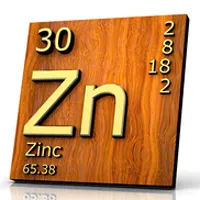
- Share on Facebook5
- Share on Pinterest
- Share on Twitter
In a study completed at Oregon State University, researchers have found that zinc is a vital nutrient that is poorly absorbed by older people. Additionally, many people with deficient levels of zinc are prone to higher levels of degenerative disease, including cancer, heart disease and auto immune system disorders.
 Senior Citizens and Zinc
Senior Citizens and Zinc
In the study published in the Journal of Nutritional Biochemistry, senior citizens were found to have the lowest levels of zinc absorption. Inadequate zinc levels lead to high amounts of systemic inflammation throughout the body. Although inflammation is a normal function of the immune system, at high levels it can lead to tissue and organ damage. In elders who were provided with zinc supplements 10 times the suggested dietary levels of the mineral, inflammation levels returned to those found in younger healthy individuals.
Researchers also discovered that seniors do not absorb zinc well. This factor accounts for the surprising low levels of zinc deficiency in the elderly and why taking such large amounts proved to be beneficial. However, zinc should not be consumed at more than 40 mg per day, since it can interfere with the absorption of other vital nutrients, including copper and iron, at higher levels.
Zinc can be naturally found in many meat and seafood. Although it is present in grains and vegetables, it is less easily accessed by the body.
Other Benefits of Zinc
Zinc is also an excellent source for preventing and fighting colds. Zinc supplements have long been used as a natural remedy for the uncomfortable symptoms of the common cold, including sore throat, sniffles and a stuffy nose.
Zinc is also an important ingredient in all-natural sun block products. Zinc can protect your skin from the damaging rays of the sunlight. Look for sun block products that list zinc as the first or second ingredient for maximum benefit. You should reapply sun block products with zinc after swimming or getting wet or if you are sweating.
Doctors often do not test for zinc in routine blood tests. The best approach to making sure you and your family members consume adequate levels of zinc is through supplements or eating foods that contain the mineral.
Do you use zinc if you are getting a cold or in sun block products?
– The Alternative Daily
- Share on Facebook5
- Share on Pinterest
- Share on Twitter

